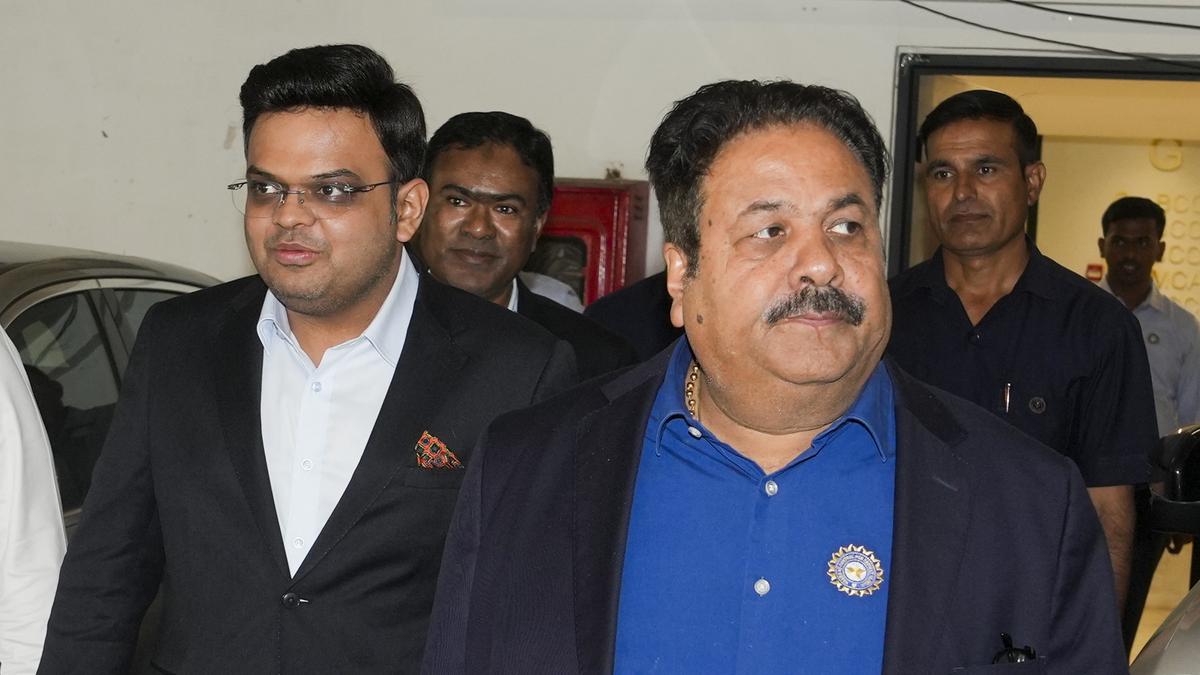The call from an unknown number came on the evening of June 21. Routine enough, thought 35-year-old sales executive Adepu Nikhil — until the voice on the line introduced himself as Sub-Inspector K.Y. Venugopal from the Women Police Station, Cyberabad. There had been tensions at home. His marriage to L. Swathi, 30, a private company employee, was strained. She had moved out months ago. But police involvement? That was a new line being crossed, he felt.
At home in Hyderabad’s Gachibowli, he was raising their three-year-old son, Agastya, alone. The family’s struggles had been quiet and private, so the news of a formal police complaint and being called in for questioning hit him hard.
He visited the police station that very evening, but the officer handling the case wasn’t available. When he returned the next afternoon, he was told a case had been filed four days earlier. The charges: cruelty by husband, assault and criminal intimidation. He was not lone accused; his 63-year-old mother, Adepu Vijaya, residing in Kazipet of Warangal district, around 200 kilometres from Hyderabad, was also named in the complaint.
“My mother is the sole caregiver for my ailing father and had no role in my disagreements with Swathi. Yet her name was on the FIR,” recalls Nikhil. When he explained the family situation to the police officer, the conversation reportedly took a different turn.
On June 25, during another visit to the police station, the officer allegedly hinted at a fix: reconcile with Swathi and pay ₹50,000 to have his mother’s name dropped. When Nikhil refused, the demand dropped to ₹25,000, the calls pressing harder each time.
Two weeks later, Nikhil walked into the station again. This time, with officers of the Anti-Corruption Bureau (ACB) trailing behind. The trap was swift; the officer was caught with the cash.
His case is now among 22 booked by Telangana ACB in July 2025 alone, which is part of a broader tally of 148 cases in seven months, 145 arrests, and over ₹30.32 lakh seized.

In a State where corruption is often hard to prove and harder to prosecute, the case highlights how ordinary families, already grappling with personal crises, can be further ensnared by abuse of power, leaving them either silenced or, in rare moments, emboldened to fight back.
The long road to justice
For most people, walking into an ACB office is far from a routine visit. They arrive anxious, hesitant and even scared, unsure if speaking out will bring change or invite trouble.
It begins with a complaint, usually handwritten or typed, submitted at the local ACB range office or via the bureau’s online portal. Most allege that a government official demanded a bribe for a service supposed to be provided as a matter of right. Once filed, the ACB verifies the claim, seeking proof such as recordings, chats or other evidence. If the bribe hasn’t been paid, officers may plan a trap.
The operation is precise: mediators are arranged, the complainant is fitted with a hidden recorder and currency notes dusted with a chemical powder called phenolphthalein are handed over. When touched, the powder leaves traces visible in a chemical test, with the entire exchange captured on camera.
If the handover succeeds, the accused is caught ‘red-handed’, taken into custody and booked under the Prevention of Corruption Act. Press notes and photos follow, but the real work begins behind the scenes.
The ACB compiles a case file which includes enquiry reports, witness and accused statements, forensic results and trap footage, and then sends it to the Vigilance Commission for vetting. To proceed, prosecution sanction — legal nod before the chargesheet can be filed in court — must come from the accused officer’s department, a process intended to be independent but rarely swift.
After arrest, the ACB also recommends the officer’s immediate suspension for two years as per its own manual and government orders. On paper, it is automatic; in practice, it often isn’t.
Promotions, plum posts, repeat offenders
Despite a steady rise in ACB cases, systemic deterrence remains weak. Many accused officials face little consequence, securing plum postings and, in some cases, earning promotions while proceedings drag on.
On July 12, Panchayat Raj Assistant Engineer Jagadeesh Babu was trapped by the ACB in Peddapalli while accepting bribe of ₹90,000. He had earlier been booked in 2017 for allegedly taking ₹1.5 lakh in Karimnagar, yet continued in service and secured a prime posting.
“This is not an isolated incident,” says Padmanabh Reddy, president of the Forum for Good Governance, a non-profit working towards securing good governance at all levels. “There are several government employees who have been caught more than once but nothing happens to them, thanks to the file-pushing culture,” he adds.
Promotions, though technically on hold under the “sealed cover” rule, are often granted when officers approach the courts or departmental review committees. Without a chargesheet filed within a “reasonable” timeframe, many successfully argue that promotions cannot be withheld.
In one instance, a Deputy Commercial Tax Officer (DCTO), posted in the office of the Joint Commissioner, Malkajgiri, who was booked by ACB in 2013, obtained a court order recommending promotion to Assistant Commissioner, with the case still pending 11 years later. In another case, a woman CTO facing disciplinary charges since 2017 was similarly recommended for promotion. The pattern is clear: institutional delays, poor follow-up and legal loopholes blunt the impact of corruption cases.
The bureaucratic backdoor
Even with trap videos, recovery of tainted cash and written complaints, an ACB case rarely moves in a straight line to conviction.
In 2024, the bureau booked 152 cases — highest in three years — but secured only 16 convictions. Officials say the conviction rate is 60-70%, yet most trials stretch for 7-8 years. “These cases represent only 5% of actual corruption in the State,” says Reddy. “Everyone knows it will take 8-10 years, if at all, to reach a conclusion, so even the accused treat the proceedings with little seriousness.”
Structural deficiency, he says, makes the process slower. Bail comes within two weeks of arrest, suspension is reviewed in six months and many officers are reinstated soon after.
Interestingly, right from the day of suspension, the accused official draws half-salary and 75% dearness allowance, and receives full pay after six months. If the departmental review committee finds no strong reason to extend the suspension, which Reddy says is common, they are posted back to work.
“In most cases, the committee just lets it go. Since the accused officer has to be paid the entire salary after six months, the government prefers they come back on job,” says a senior official of ACB on condition of anonymity.
Early reinstatement happens in 5-6% of cases, says another ACB official. A recent Supreme Court ruling, stating that suspension should not exceed six months unless a chargesheet is filed, has further opened the door for accused officers to return early via committee orders or court appeals. “There needs to be clarity and reconciliation on this issue,” the official adds.
Prosecution sanction is another bottleneck where delays spiral: “Unless the report is airtight, legally and procedurally, the file can get stuck.”
If the Vigilance Commission flags gaps, files are sent back; in some cases, the government withholds sanction altogether, ending the matter without a trial. Political or departmental links can further slow down movement
.According to Reddy, the State government denied ACB permission to prosecute in at least 40 cases between 2014 and 2015 alone.
“Since then, at least 13 FIRs have been closed and six cases dropped entirely. In many other cases, iles have simply been routed to ‘departmental action’; ‘tribunal disciplinary proceedings’, which has remained largely inactive due to staff shortages or the ‘Commissioner of Inquiries’, often led by a retired officer with limited capacity,” he says.
Internal inquiries often involve officers known to the accused, resulting in cursory questioning and little to zero disciplinary action.
And when a case does make it to court, judicial delays take over.
Weak links in the chain
Until recently, Telangana had only one special ACB court in Nampally, Hyderabad. Two more have been set up in Warangal and Karimnagar, but backlogs remain high. “The Nampally court is overburdened. There are no regular judges, trials are delayed, and pendency keeps growing,” an ACB official says.
Structural limitations also continue to weaken investigations. “For misappropriation cases, we often deal with hundreds of pages of bank statements, digital transactions and layered financial data. We need more forensic experts, trained analysts, better labs and upgraded tools, but our resources are stretched thin and delays in reports are routine,” an official notes.
Reddy says the bureau’s staffing mindset must change. “An ACB posting is still seen as a punishment. Like other specialised units, ACB personnel should get special allowances or incentives,” he stresses.
Legal experts warn that the bigger threat lies in exploiting procedural loopholes that enables accused officials to return to service with minimal consequences. “Removal from service is the only real deterrent, but it almost never happens,” says a criminal lawyer at the Nampally court.
He asserts that many delays are deliberate: FIRs and mediators’ reports in trap cases are ready, yet departments take 100 days or more to file a chargesheet that could be done in 30. :That delay itself weakens the case,” he says.
In the meantime, accused officers often secure reinstatement through High Court or tribunal orders, he adds. Poor prosecution is another weakness, he rues: “Public prosecutors handling ACB cases are often poorly trained and lack the legal expertise to match the defence. If we are serious about securing convictions, we need our best lawyers on such cases.” Advocate Immaneni Rama Rao echoes similar concerns, noting that political and bureaucratic interference continues to compromise accountability. “There is a lackadaisical approach when it comes to certain individuals. That selective leniency creates public suspicion,” he says.
While technology and online portals have improved reporting, he warns that unless the role of influential State actors is reined in, structural protections will continue to shield tainted officials.



